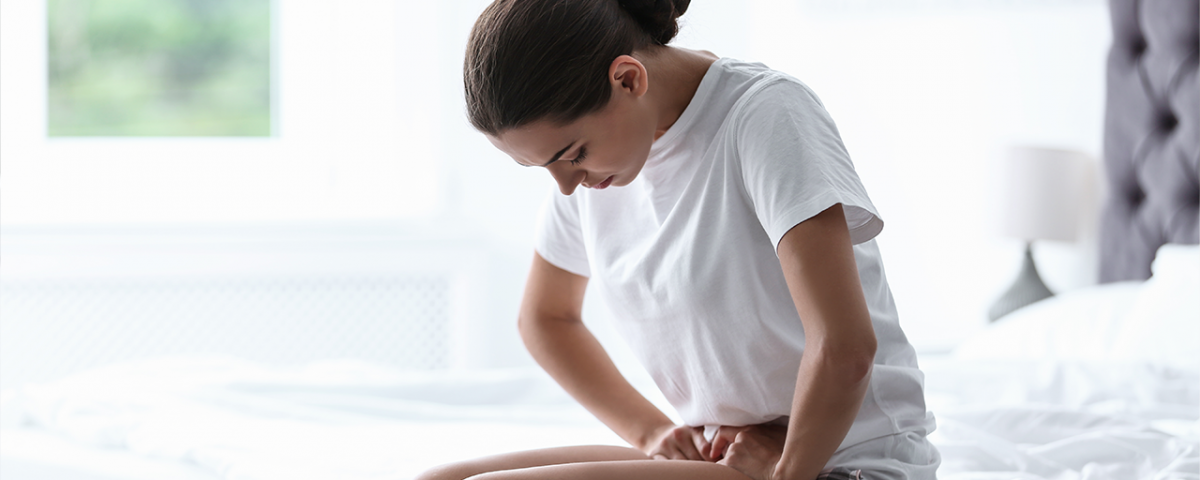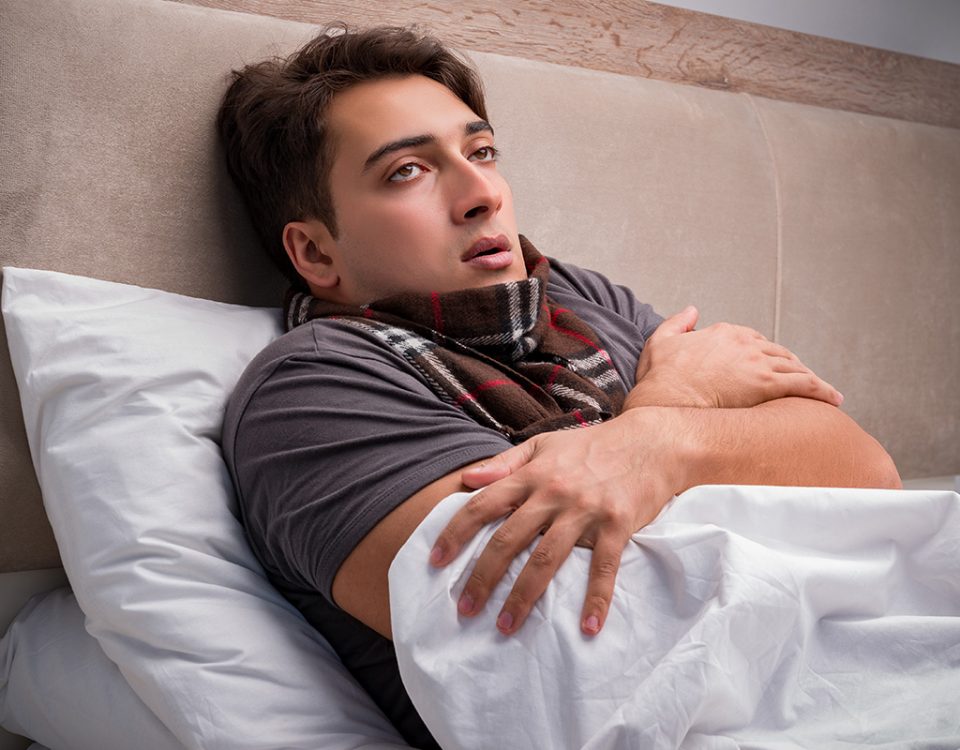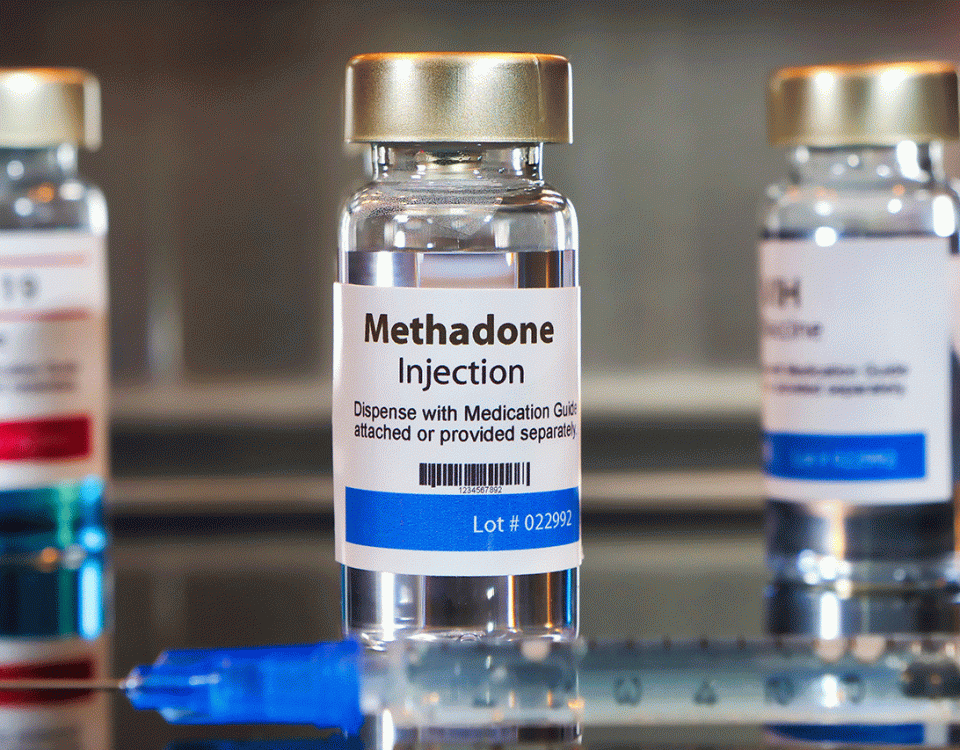Have you ever wondered, “why does my period stop when I drink?” If you have, you aren’t alone.
Alcohol and period problems are a common duo. Any person can attest to the fact that alcohol impacts your body in more ways than one. From reduced inhibitions to a hangover that will make you regret your decision to drink, alcohol can have a huge impact on your mind and body, including your menstrual cycle. However, Banyan Stuart recognizes that there’s a lot of conflicting research on “does drinking alcohol affect your menstrual cycle,” so let’s dive into it.
What Is a Menstrual Cycle (Period)?
Menstruation is the monthly shedding of the lining of a woman’s uterus (which you may know as “the womb”). During a normal period, the lining of the uterus sheds, preparing it for a possible pregnancy. Menstrual blood flows from the uterus through the cervix and out of the body through the vagina.
Also referred to as a menstruation cycle or period, a menstrual cycle refers to the sequences of events that occur within a woman’s body as she prepares for a possible pregnancy. A menstrual cycle begins on the first day of the woman’s period, which typically lasts anywhere from 4 to 7 days. The time between cycles, or periods of menstrual bleeding, can range from 28 to 35 days.
How It Works
The steps in a menstrual cycle are triggered by the fluctuation of hormones. A gland in the brain called the pituitary gland and the ovaries in the female reproductive tract work together to release certain hormones at a certain time during your period.
The menses phase is the first phase of a menstrual cycle, during which the uterus will shed, and usually, the woman will bleed for 2 to 7 days. The follicular phase is next, which commonly lasts 6 to 14 days.
During this phase, the level of the hormone estrogen rises, causing the lining of the uterus to grow and thicken again. Another hormone called the follicle-stimulating hormone is also released during this phase, causing follicles in the ovaries to grow to form a fully mature egg.
Then, ovulation happens, which occurs roughly at day 14 in the 28-day menstrual cycle. During this phase, the luteinizing hormone causes the ovaries to release their eggs, otherwise known as ovulation. The last phase of a period is the luteal phase, in which the egg that was released from the ovary travels through the fallopian tubes to the uterus.
The level of the hormone progesterone rises, preparing the uterus lining for pregnancy. If the egg is fertilized by sperm, then it attaches itself to the lining of the uterus, forming a pregnancy. If not, then the levels of estrogen and progesterone drop, and the lining of the uterus is once again shed during the menstrual period.
Can Alcohol Affect Your Period?
Yes, alcohol can affect your menstrual cycle (period). Stopped or irregular menstrual bleeding after drinking alcohol is a common concern for many women. But why does this happen?
Hormonal Imbalance
Alcohol can stop or cause irregular menstrual cycles because it increases levels of hormones like estrogen and testosterone, and sometimes the luteinizing hormone. This causes a hormonal imbalance, which in turn can affect whether your period occurs, how long it lasts, and how heavy it is.
Drinking alcohol can also increase androgen levels during the follicular phase and estrogen in the ovulation phase.1 This effect showed to be most apparent in women who engage in binge drinking. Drinking alcohol during your period can also worsen common menstrual symptoms, including moodiness, trouble sleeping, bloating, and cramps.
Worsening Cramps
Not only does drinking alcohol affect your menstrual cycle by causing bloating, but it can also worsen cramps by impacting the balance of prostaglandins. Prostaglandins are a group of lipids made at sites of tissue damage or infection to help heal injuries and illness. They control processes like inflammation, blood flow, and the formation of blood clots, and they even help to induce labor.
During a menstrual cycle, prostaglandins trigger contractions in the uterine muscle. Higher levels of prostaglandins cause more severe menstrual cramps. Alcohol increases prostaglandins levels, worsening your period cramps.
Dehydration
Alcohol is notorious for dehydrating people, especially when it’s heavily consumed and the only thing the person has had to drink. As a result, heavy drinking can worsen period cramps by thickening menstrual fluids and blood, making it more difficult for them to pass through the uterus, through the cervix, and out of the body.
Heavier Period
Alcohol can also make your period heavier or cause you to bleed more during menstruation. Since alcohol is both a blood thinner and because it increases estrogen levels, heavy drinking may lead to a heavier period. That’s because estrogen stimulates the growth of endometrial tissue or the lining of the uterus that’s being shed. This means that you’ll have more to shed during a period, which means heavier bleeding.
How Long Can Alcohol Delay Your Period?
The effects of alcohol on menstruation can differ from person to person, and there is no established time frame for how long it may postpone a period. Some people may experience hormonal imbalances and irregular menstrual cycles as a result of excessive alcohol use. In these situations, the length of the delayed intervals could range from a few days to many weeks. It's important to realize, though, that not all women will feel this effect, and others might not even detect any changes in their menstrual cycle after drinking. The degree of the effect on menstruation may depend on variables such as a person's metabolism, general health, and alcohol consumption.
Women must be aware of the potential effects of alcohol use on their menstrual health. A woman should seek medical advice if her periods become persistently irregular or take a long time to arrive after drinking.
Improving Feminine Health After Alcohol Abuse
A crucial component of post-recovery treatment is enhancing feminine health after alcohol consumption. Long-term alcohol addiction can harm a woman's overall health, causing hormonal imbalance, irregular menstruation, and possibly even fertility problems. Women must seek out professional assistance and support groups to get started on the path to recovery in order to address the fundamental causes of alcohol consumption and create healthy coping skills. By addressing any emotional or psychological issues causing the addiction, therapy or counseling can help pave the way for emotional well-being and a healthy way of life.
It is essential to take a holistic approach to feminine health, going beyond dealing with the psychological components. A nutritious diet that is balanced can improve reproductive health and assist in regulating hormones. Regular exercise can help manage stress and lower the chance of relapse, in addition to promoting physical well-being. Women should place a high priority on obtaining enough sleep because restful sleep is essential for maintaining healthy hormone levels and general well-being. Women who have abused alcohol can improve their feminine health by adopting these healthy lifestyle choices and obtaining expert assistance, which will result in a better, healthier future.
The Takeaway
Keep in mind that alcohol’s effect on period cycles depends on how often and how much of it you drink. While one alcoholic drink every once in a while won’t affect your period (unless you have a particular condition), heavy drinking definitely will. Even if you consider yourself to be a social drinker, the line between casual drinking and binging can blur if you aren’t careful.
Women who are addicted to alcohol or unable to control their drinking increase their risk of stopped or irregular periods. Moreover, not only does drinking alcohol affect your period, but it can also heavily impact your liver and increase your risk of heart disease and even diabetes. If you notice that your drinking is slipping beyond your control, our Florida alcohol detox and treatment can help you manage withdrawals and improve your chances of recovery.
Heavy drinking can impact your body in more ways than one, even going as far as to affect fertility, immunity, and heart health. If you or someone you care about is struggling with a drinking or drug problem, the Stuart, Florida, Banyan Treatment Center is here to help. Patients who receive drug or alcohol addiction treatment at our facility will have the opportunity to work with our team of experts to learn more about their addictions, develop relapse prevention skills, and more.
Call our Stuart rehab center today at 888-280-4763 to learn more about our Florida addiction treatment services and how they can help you or a loved one recover.
Source
Related Reading









